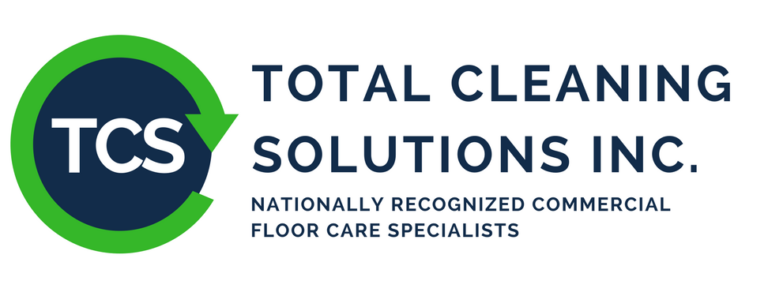Here’s an interesting fact: did you know that concrete is the second most used substance in the world, right after water? Yeah, that’s true, and what’s more, the vast majority of homes and commercial buildings have concrete floors.
When someone says concrete floor, the first thing that comes to mind is that greyish surface, that’s a bit bumpy and cracked here and there, right? Technically, you’re not wrong. However, that’s the stage when you just pour concrete over the floor and let it dry.
Once grounded, smoothed out, and coated with a nice sealer, it can look absolutely stunning. This is especially true if you use an acrylic concrete sealer to give the floor both protection and aesthetic appeal.
Without a sealer, a concrete floor would look pretty much like most people imagine it, even worse as time goes by. It would bulge, crack, flake, and turn into a horrible mess that no one can even look at.
That said, what is acrylic sealer, and why would you use one, to begin with? Well, why don’t we find out right now, shall we?
What Exactly is an Acrylic Sealer for Concrete Floors?
Simply put, a concrete sealer is a liquid compound that is poured over the concrete floor in order to make a protective, and sometimes, aesthetically pleasing finish.
These types of sealers are also called film-forming, because they create a layer of protective film over the concrete floor, covering its entire surface. As these things go, there are several types of film-forming sealers, which are:
- Acrylic concrete sealers.
- Polyurethane or 2-part concrete sealers.
- Epoxy concrete sealers.
That being said, acrylic sealers are the most common and most widely used concrete sealers in the world. They come in both water and solvent-based formulas.
Regardless of which type you opt for, acrylic solids are suspended in liquid carriers, water or solvent, such as acetone or xylene. Once applied over the concrete surface, the liquid evaporates, and acrylic solids remain on the surface to form a film.
Why Do You Need an Acrylic Sealer and When to Apply It?
As mentioned before, a concrete floor without a sealer already looks messy, and it will only get worse. The fact of the matter is that concrete has microscopic holes in it that eventually get filled with water, dirt, grime, and other stuff.
Once this debris accumulates in those pores, it will cause significant damage to the floor. However, once a sealer is applied, it will coat the concrete surface and create a protective layer. This layer’s main benefits include:
- Protection from moisture and spills.
- Protection from physical damage, like dropping a heavy object on the floor.
- Improved overall durability of the floor.
- Resistance to abrasive chemicals and cleaning solutions.
- Protection from environmental hazards and weather conditions.
As you can see, the main purpose of the concrete sealers is protection from various things, above all else. However, acrylic sealers can also add an aesthetic element to the floor.
For example, if you have a stamped concrete floor that has a pattern or a design imprinted on it, you can use a stamped concrete sealer or clear acrylic sealer to preserve the design while giving it a protective layer.
Also, if you just have a plain old concrete floor, you can use colored acrylic sealer to breathe new life into your floor. You can even mix colors to create unique designs or patterns, however you wish.
Therefore, you can apply a sealer whenever you want, but the general rule of thumb is to apply a sealer right after you install a new concrete floor.
However, if you failed to do so, it’s not a big deal. You can always repair the damages that occurred over time, grind the floor to even it out, and then apply a sealer to preserve it.
The Pros and Cons of Acrylic Concrete Sealers
There’s a good reason why acrylic sealers are so popular these days. As a matter of fact, they are very affordable and easy to apply, which is why they are an obvious choice for the majority of commercial properties.
Unfortunately, there’s a good side and a bad side to using acrylic sealers. We’ll go over both pros and cons to help you better understand what this sealer is all about.
The Pros of Acrylic Sealers
Acrylic sealers are very versatile, very common, and you can find them in any hardware store. That doesn’t mean you can apply the sealer yourself, though.
If you’re not sure what you’re doing, it’s better to hire professionals to do it for you. That said, the pros of opting for acrylic sealers include:
- Affordability and cost-effectiveness.
- Improved durability.
- Beautiful aesthetic appeal.
- Simplified maintenance.
- Easy to reapply when necessary.
- Offer solid protection from moisture and other hazards.
Now, if you want to make the most out of acrylic sealers, you should know that they require regular cleaning and maintenance. That said, there are numerous ways to take care of your concrete floors, but if you’re not certain how to do it, you can always hire a skilled cleaning company to do it for you.
The Cons of Acrylic Sealers
Nothing is perfect, and whenever there are pros, there are also cons, like two sides of the same coin. Speaking of acrylic sealers, there are a couple of disadvantages that you need to be aware of. Here are a few examples.
- Acrylic sealers produce a very thin protective film, which means the floor will get damaged sooner rather than later.
- Heavy foot traffic or prolonged exposure to water can compromise acrylic sealers. You will have to inspect for damages or water accumulation regularly, in order to prevent further damage.
- Many companies often opt for cheaper acrylic sealers to manage expenses. However, cheaper also means lower quality, and low-quality acrylic sealers will degrade faster, especially if exposed to UV radiation or direct sunlight, if you will.
- Exposure to abrasive chemicals or harsh cleaning solutions will also degrade the protective layer of acrylic sealers. You’ll have to opt for natural, often more expensive, cleaning solutions to preserve the floor.
How to Make the Most Out of Acrylic Sealers?
Acrylic sealers may not be the best option available to you, but they will get the job done either way. As long as you pay attention to its drawbacks and schedule regular cleaning and maintenance, your acrylic sealer will make it worth your while.
Speaking of which, you’re investing in an acrylic sealer, and it’s only logical that you want to make the most out of your investment. This is why the best approach is to hire professional cleaners to ensure your floor is in tip-top shape.
For example, when you start to see some wear and tear on your acrylic concrete floor, you should strongly consider concrete floor waxing services at that point. Skilled workers will come in, remove the top layer of the sealer and apply a new layer of industrial wax.
This will not only rejuvenate your floor but also give it a brand new coat of protection. That said, here are a few things you need to pay attention to when using acrylic sealers.
- If you notice a loss of gloss on your flow, it means that the acrylic sealer is starting to degrade.
- If you notice any signs of pitting or spalling, it means your floor has taken a beating, and it should be rejuvenated soon.
- Acrylic sealers are resistant to moisture, so whenever there’s a spill, the liquid should remain on the surface in the form of a puddle. If you notice that the floor is soaking up the liquid, then it’s definitely time to rejuvenate it.
With proper maintenance and care, every acrylic sealer should last at least 5 years before you need to reapply it.
Manage Your Acrylic Sealer Effectively with TCS Floors

Alt Text: An image of the TCS Floors company logo.
Here at TCS Floors, we have the experience and knowledge to handle any type of commercial floor. Our team of skilled employees is dedicated to ensuring proper care and hygiene for floors and customer satisfaction for our clients.
Whether you use acrylic or any other type of sealers for your concrete floor, we have the means and the know-how to properly maintain it. Therefore, feel free to look at some of our previous work and see how we do things.
And, if you’re in need of our services, don’t hesitate to give us a call. Our custom pricing program will ensure that you get a quote that can easily fit within your budget.
Conclusion: Acrylic Concrete Sealer – A Good All-Around Choice
Opting for an acrylic concrete sealer is a solid decision. It’s affordable, easy to apply, easy to replace, and it will provide just the right amount of protection for your concrete floor.
If you’re not especially picky about what kind of sealers will be used for the floors in your commercial property, acrylic sealers are always a safe bet. They might not be the best, but they are cheap, and therefore, very desirable and overall a good all-around choice.
FAQ:
Is acrylic sealer good for concrete?
Yes, an acrylic sealer is a very good choice for concrete surfaces. It provides adequate protection from water, dirt, and other hazards, plus it can add an additional aesthetic appeal to a dull floor. Since it’s affordable and easy to maintain, an acrylic sealer is, indeed, a great solution for your concrete floor.
How long does acrylic sealer last on concrete?
Unfortunately, acrylic sealers have the shortest lifespan compared to others. But, with proper care and regular maintenance, your acrylic sealer can last anywhere between 1 and 5 years, depending on the circumstances, of course.
What is the difference between water-based and acrylic concrete sealer?
Acrylic sealers can be either water-based or solvent-based. Both water and solvents are liquid carriers for acrylic solids. As mentioned before, the liquid is applied to a concrete surface, and once it evaporates, acrylic solids will remain to form a protective film over the concrete floor surface.
What is an acrylic sealer?
An acrylic sealer is a type of film-formed sealer for concrete floors. It covers the entire surface of the floor to create a protective layer or film, hence the name. Made specifically out of acrylic solids that are compressed into liquid carriers, this sealer is the simplest and most affordable solution for any concrete floor.


